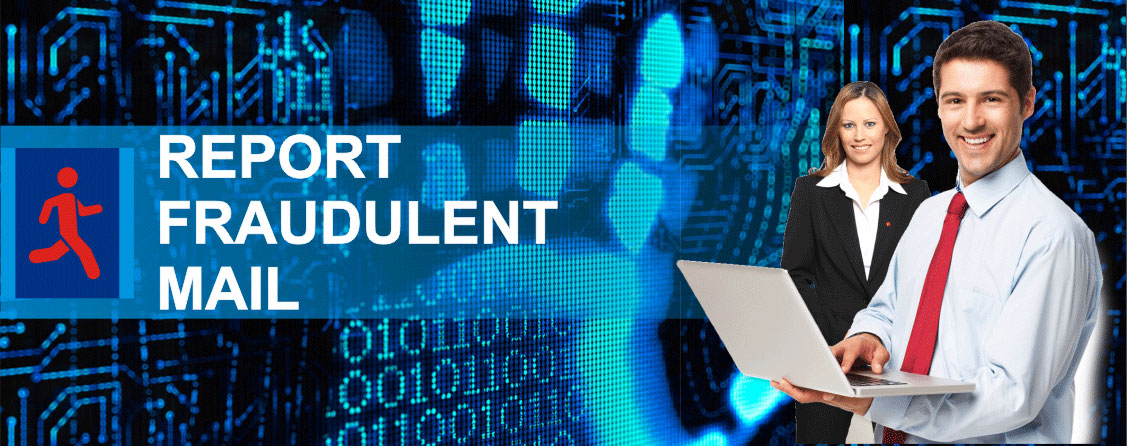Repot Fradulent Mail
Fradulent Correspondence - "Phishing"

GoVirtualWold will not ask you to disclose sensitive personal information in unsolicited e-mails, telephone calls or instant messages.
Be aware of fraudulent correspondence ("Phishing"). With the heightened media attention regarding the theft of personal data, many consumers are expressing concern over the privacy and integrity of their personal data. For that reason, it is important to address the subject known as "phishing."
Phishing is a type of fraud in which e-mail messages, instant messages and websites are used to deceive individuals into providing confidential, personal information. The term itself is a play-on-words for "fishing," the "ph" representing "password harvesting" - the idea that people will "take the bait" that is set for them and disclose personal information that can be used for credit card fraud and other serious violations of their privacy.
Phony e-mails generally appear to be sent from legitimate companies, asking users to either reply or link to a web page to update their personal information or risk closing or suspension of their accounts. The phony e-mails sometimes contain the company's logo and even an address. Among the data typically requested are the user's name and address; Social Security number; account numbers and passwords; bank account and credit card information - sometimes even the account holder's mother's maiden name, or other private information used for security purposes.
Contact Us
If you believe GoVirtualWorld's name and/or reputation has been misused in a fraudulent e-mail or other contact, please do not forward the suspected phishing e-mail, but attach it to a new email and send to Clients@govirtualworld.com.
Do not provide any sensitive personal information in the e-mail, e.g. your bank account details.
Protect Yourself
Here are measures you can take to avoid getting "hooked":
- Be alert to any unexpected e-mail, instant message, voicemail or fax that claims to be from a bank, credit card or on-line company with whom you have an account. In the event that you do receive such a message, it's a good idea to first call the customer service number on your bank, credit card or on-line statement (but not any number listed in the message) and verify whether the message is legitimate.
- Do not respond to any e-mail, phone or fax instructions that prompt you to divulge your personal information. Do not click on any links in a suspicious email. Clicking on such a link may cause the download of key logging or "spyware" software on your computer.
- Consistently adhere to the security recommendations when using GoVirtualWorld Online Services and logging in using your CRM.
- Regularly log into your online banking, credit or debit card, or other accounts and reconcile your statement balances to ensure that all transactions are legitimate. Similarly, always review your account statements to check for unauthorized charges.
- Use up-to-date anti-virus software or check with one of our Network Security experts.
- Spam filters and even "anti-phishing" software are available to help screen out potential phishers on websites and e-mails.
- Be assured that GoVirtualWorld will not ask you to disclose sensitive personal information in an unsolicited e-mail, telephone call or instant message.
 1800 949 2204
1800 949 2204 0207 993 4969
0207 993 4969